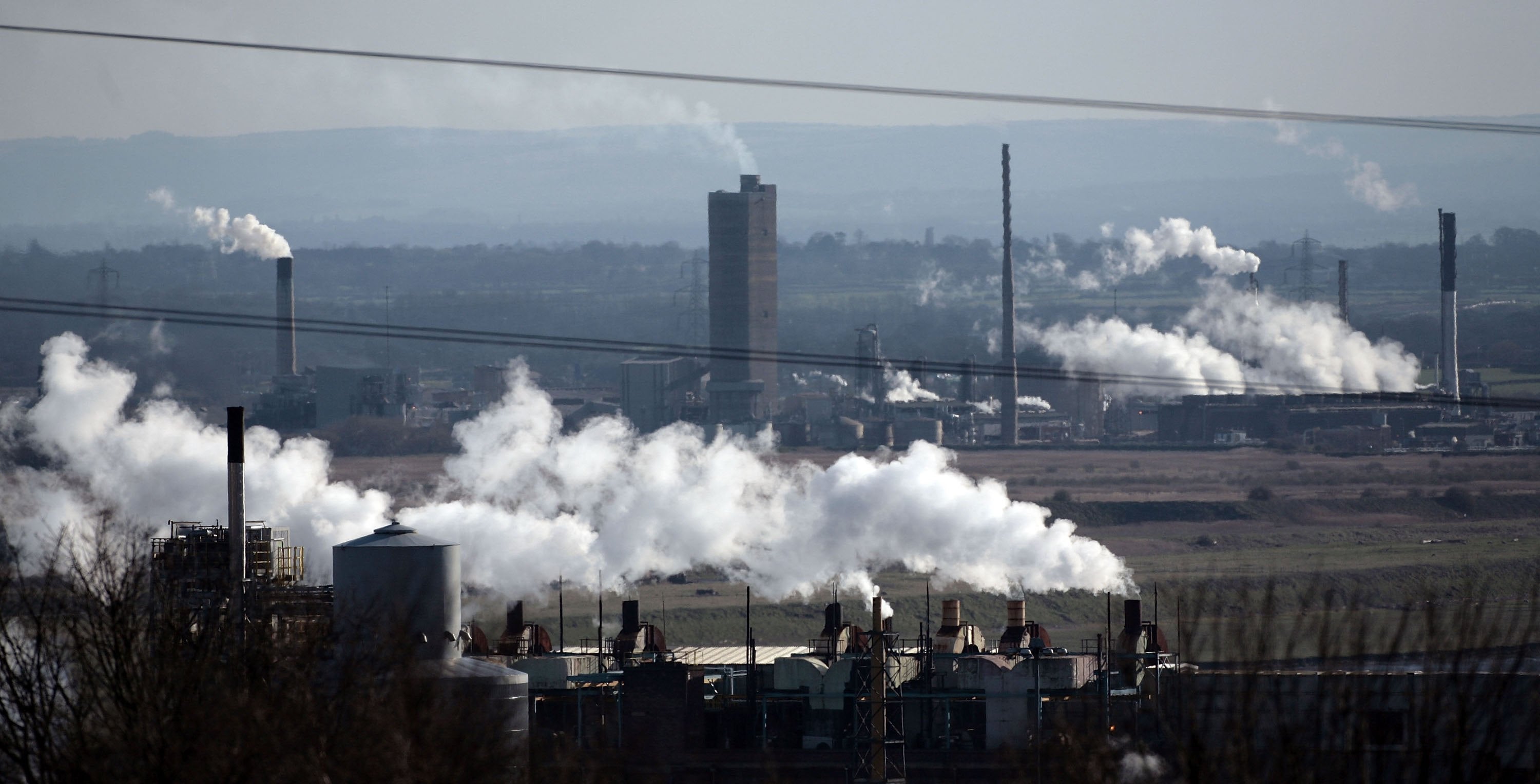Up to 660,000 jobs at risk if UK fails to cut carbon emissions quickly enough, union says
‘Business as usual’ not an option for manufacturing sector, TUC claims as it calls for greater state investment in green transition. Jon Sharman reports


Up to 660,000 jobs could be lost to employers overseas if the UK does not reach net-zero carbon emissions quickly enough, a union has claimed.
The Trade Union Congress (TUC) published figures on Sunday which claimed some 260,000 people directly employed in the manufacturing sector could see their roles shipped overseas, along with about 400,000 others in the supply chain.
This doomsday scenario is a potential outcome of so-called “carbon leakage”, the group said, “where the high costs of emitting greenhouse gases domestically could prompt businesses to relocate production to countries with less strict rules on emissions” – or more generous state support for low-carbon transition.
The TUC said research it conducted earlier this year showed British investment in the move to lower carbon emissions was “clearly falling behind competitor economies’” and compared unfavourably with action being taken by France, Canada and the US.
The government pledged in April that it would slash carbon emissions by 78 per cent of 1990 levels by 2035, a major step towards its legally-binding goal of being emissions-neutral by 2050.
But ministers should now plough even more money into the drive for net zero, the TUC said, and implement rules requiring “local content” – that is, domestically-sourced materials – for energy and infrastructure projects. It has previously called for £85bn of investment it said could fund 1.24 million green jobs.
However, the government said flatly it believed the TUC’s job loss projections were inaccurate and that it did not “recognise” its methodology.
A spokesperson for the Department for Business, Energy and Industrial Strategy added: “In recent months we’ve secured record investment in wind power, published a world-leading hydrogen strategy, pledged £1bn in funding to support the development of carbon capture and launched a landmark North Sea transition deal – the first G7 nation to do so – that will protect our environment, generate huge investment and create and support thousands of jobs.”
The TUC produced two sets of numbers on Sunday, one “broader estimate” and a “narrow estimate”; the latter suggested that about 128,000 direct manufacturing jobs and a further 240,000 in the supply chain could be at risk of moving offshore – significantly lower than the broader estimate of 660,000 losses in total.
The union body analysed figures from the government-backed Energy Systems Catapult, a group designed to promote innovation in clean power and growth, and European Union data on manufacturing subsectors thought to be at risk of carbon leakage.
“The top three regions by the number of direct jobs at risk are the northwest, Yorkshire and the Humber, and the West Midlands,” it concluded.
In a briefing, union bosses added: “Businesses in high-carbon sectors, such as steel, cement, or glass manufacturers, face costly upgrades and complex technological and process changes to eliminate emissions.
“The UK has clear climate commitments, enshrined through international agreements and legislation, so continuing business as usual in these sectors is not an option. Instead, these sectors need additional support to change their production to a model compatible with a net zero carbon future.”
An expert said that while the TUC was correct to say some industries faced a risk from carbon leakage, most big firms were already making strides in low-emission investment.
Bob Ward, of the London School of Economics’ Grantham Research Institute, told The Independent: “The TUC is right that in a limited number of industries, such as steel manufacturing, there is a risk in the short-term of high-carbon jobs re-locating to pollution haven countries with lower environmental standards.
“However, the leading companies in these global industries are all investing heavily in new processes to eliminate greenhouse gas emissions.
“That is why it would be very short-sighted, for instance, to invest in a new coal mine to serve the steel industry. The future competitiveness of the UK depends on strong and clear government policies and wise investments that accelerate decarbonisation across the economy.”
The TUC’s claims came as ministers prepared to host the UN’s Cop26 climate conference in Glasgow in November, where they will attempt to persuade world leaders to sign up to the 2050 target for carbon neutrality. However, the publication of Boris Johnson’s strategy for reaching net zero by that date has been delayed.
Join our commenting forum
Join thought-provoking conversations, follow other Independent readers and see their replies
Comments
Bookmark popover
Removed from bookmarks